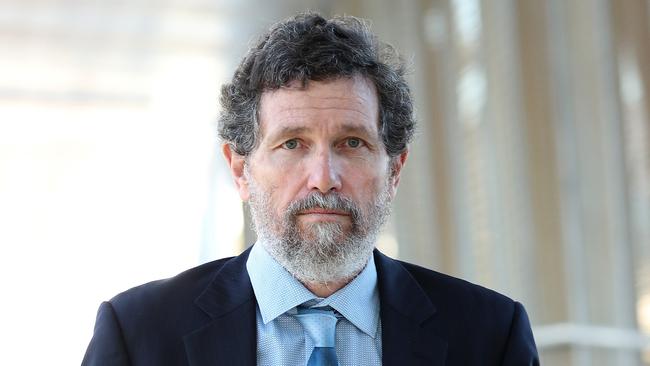Great Barrier Reef coral testing ‘flawed, needs fix’, says Peter Ridd
Rebel marine scientist Peter Ridd has thrown down a challenge as to whether humans have hurt the growth of Great Barrier Reef coral.

Rebel marine scientist Peter Ridd has thrown down a challenge to reef scientists to test whether or not human actions have caused a collapse in the growth rate of corals on the Great Barrier Reef.
Dr Ridd said despite published claims of a collapse in coral growth rates between 1990 and 2005 due to stress from human pollution, there was no data for the past 15 years. “We don’t know how the Great Barrier Reef has fared since 2005,” he said.
He has proposed a new program of drill core sampling to bring the record up to date and test whether assumptions about a collapse in growth rates because of warmer temperatures can be believed. Like tree trunks, drill cores from old corals can reveal growth rings that show age and growth rates. Writing in The Australian on Thursday, Dr Ridd says a properly supervised program would be an “acid test of the trustworthiness of our major science institutions”.
Contrary to widely quoted figures, he believes the research will show there has been no slowdown in coral growth rates.
“If this measurement is done, and done properly, and it shows there has been a major reduction in coral growth rates, I will be the first to accept I was wrong and that there is a disaster happening on the reef,” Dr Ridd says.
The foundation of claims about a dramatic decline in reef growth is contained in a 2009 paper by Glenn De’ath from the Australian Institute of Marine Science that is still widely quoted.
The Great Barrier Reef Outlook Report 2019 cites the De’ath report in claims that reef calcification declined by 14 per cent between 1990 and 2005.
“Increasing sea surface temperatures and ocean acidification have been implicated as the primary drivers contributing to this decline, with the trend expected to continue,” the report said. It added that the condition of reef building had deteriorated since 2014, largely because of the effects of unprecedented declines in coral cover from bleaching and cyclones.
The De’ath paper investigated 328 colonies of massive Porites corals from 69 reefs. Skeletal records showed that throughout the Great Barrier Reef, calcification had declined by 14.2 per cent since 1990. “The data suggest that such a severe and sudden decline in calcification is unprecedented in at least the past 400 years,” it said.
The study “suggests that increasing temperature stress and a declining saturation state of seawater aragonite (a mineral) may be diminishing the ability of Great Barrier Reef corals to deposit calcium carbonate”.
Dr Ridd challenged the research, claiming a change in methodology had resulted in the apparent drop in coral growth rates from 1990.
The authors accepted criticisms that there had been incorrect measurement of near-surface coral growth rings on most of the corals that were giving data from 1990 to 2005 and printed a correction to the paper. However, AIMS rejected criticisms by Dr Ridd that much smaller and younger corals had been sampled for the 1990-2005 data compared with the mostly very large and old corals of the pre-1990 data.
Dr Ridd claims the problems he identified represent a “fundamental problem with a keystone piece of Great Barrier Reef science”.
He has been an outspoken critic of the level of quality assurance for reef science and wants a portion of reef funding from government to be spent checking the accuracy of major scientific findings before money is spent.





To join the conversation, please log in. Don't have an account? Register
Join the conversation, you are commenting as Logout